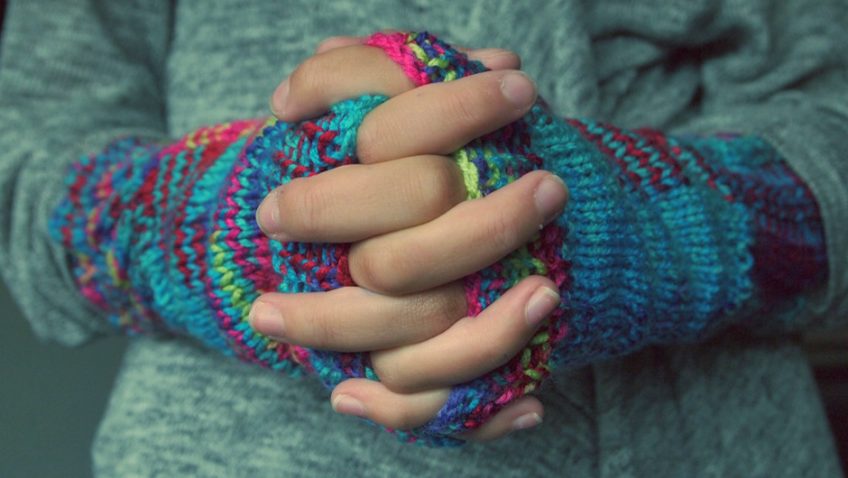‘Susceptible to cold’, ‘poor circulation’…these are some of the things people who often suffer from cold hands and feet may be heard to say, but could it be something else?
According to the Raynaud’s & Scleroderma Association (RSA) Raynaud’s phenomenon is a common condition thought to affect up to ten million people in the UK. In people who have Raynaud’s, the small blood vessels in the extremities are over-sensitive to even the slightest changes in temperature, the cold and sometimes stress. This causes a Raynaud’s attack where the fingers sometimes change colour, but not always, from white, to blue, to red.
Raynaud’s phenomenon can affect anyone of any age – babies, young children, adolescents, mature adults and the elderly – those of all ages can experience distressing symptoms and struggle to keep warm.
February is Raynaud’s Awareness Month (RAM) and the RSA are campaigning to help raise awareness and highlight the problems associated with Raynaud’s, a syndrome that affects one in six people in the UK.
You can get involved by getting your friends, family or co-workers to unite for Raynaud’s by organising a coffee morning to raise money to improve early diagnosis. You can also visit the RSA website and take a test to help determine whether you may be suffering from Raynaud’s.
Pain, numbness and tingling are common experiences in an attack of Raynaud’s, which can be precipitated by exposure to something cold or even a slight change in temperature. Even experiencing stress or strong emotion can trigger a painful Raynaud’s attack. The condition has a real impact on daily life and can make everyday activities like shopping, using keys, holding cups, getting dressed – plus a myriad of other things most of us take for granted – very difficult.
While there are various ways to help ease the severity of Raynaud’s – including medication to open up the blood vessels in more severe cases and natural products like ginger, where it is milder – one of the best defences remains keeping warm. When even reaching into the fridge can cause a painful attack, this isn’t always easy!
Those who have Raynaud’s can find it upsetting and frustrating, particularly when others don’t understand their condition. Lack of knowledge and awareness can mean the condition is trivialised by the public and the extent of how debilitating Raynaud’s can be can leave sufferers feeling isolated and alone.
Primary Raynaud’s can be experienced in mild forms to very severe forms. It generally exists without any association with another disease and is often hereditary. Secondary Raynaud’s is usually more severe and can be linked to forms of arthritis and it can indicate heart/ vascular problems or initial signs of more rare autoimmune, connective tissue diseases (connective tissue is everything between the skin and bone) such as scleroderma or lupus.
‘A Raynaud’s attack can happen suddenly – fingers or other extremities quickly become white and lifeless, turn blue and finally red again as the blood returns.’ explains Liz Bevins, CEO of the RSA. ‘If you suffer from cold hands, please don’t ignore it, as some of the above diseases have silent phases, so you have few symptoms or know no pain until the disease is in its later stages. A few simple tests may be able to diagnose the above conditions much earlier, so we’re encouraging you to go to your local GP and discuss any concerns you have.’
To find out more about Raynaud’s, or to donate or get involved with campaigns and fundraising, visit: https://www.sruk.co.uk/get-involved/raynauds-awareness-month/





